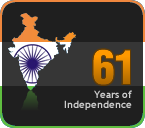The biggest peril of education is that it teaches you that there is a lot that you don't know. Leaving home at the age of 16 of course had its advantages. I probably know the bathroom proclivities of Jenna Jameson and Chasy Lane like no other in this great world of ours. But I fear that this single minded pursuit of mine has rather blinded myself to the pursuits of the higher arts. The arts in which instead of putting in coins in a slot and waiting for a glass panel to open, you actually get to sit in a chair and clap.
To make amends to that oversight, I picked up "Understanding Drama" as one of my subjects. Of great interest i have found it to be. A pleasant surprise was to find nestled in between Macbeth and Arms and the man was the play Ghashiram Kotwal , by Vijay Tendulkar .
Vijay Tendulakr has written a huge load of literature of which some of his most famous plays are "Sakharam binder" and "Kanyadan". Girish karnard actually commented on his play "Shantata! Court Chalu Ahe!" as "the best play written in the last thousand years". How do you top something like that?
The play Ghashiram Kotwal debated in 1972 and was played at the Bharat Natya Mandir at Pune. It actually ran for 19 performances after which it was banned because it was perceived as Anti-Brahmin and showed Nana Phadnavis (the Prime minister of the Peshwa) in a bad light. Sounds like things haven't changed much since then.
The play revolves around a North Indian Brahmin called Ghasiram who comes to Pune to make his fortune. But is falsely implicated as a thief by the Brahmins and thus decides to make pune a "city fit for dogs". To do that, he rather callously barters his underage daughter Gauri to the lustful Nana Phadnavis, in exchange for becoming the Kotwal of Pune. He then unleashes a reign of terror on the city and its Brahmins. These includes pulling off the nails of people and then chopping off their hands. Pretty gruesome.
Ghasirams downfall begins when gauri goes missing. When he confronts nana about his daughters whereabouts, he comes to know that she passed away when she had gone to the midwife. A distraught Ghasiram then Packs up thirty Brahmins in a cell which results in the death of about twenty of them. When peshwa gets the news of this, the wily politican Nana, dumps the kotwal to the crowd.
Tendulkar has used the "Tamasha" Genre in the play so you have a lot of singing and dancing used here to good effect. For example, we actually have the "abhangas" (devotional songs) mixed in with the "Lavnis" (Love songs). These actually highlight the moral corruption of the Brahmins as they try to hide their lust behind the respectability of religion. The use of the Tamasha also ensures the presence of some colourful language. For example, when they are talking about the barter of Gauri for the kotwal-ship, Nana says,
"You bastard. you have got me stuck in a narrow pass."
to this Ghasiram replies, "Yes the narrow pass of my daughters."
Also the use of the "Sutradhar" or narrator and the human wall of 12 brahmins as a curtain are some very interesting adaptations used for the theater. This actualy means that this play can be performed anywhere from the NCPA in mumbai to the Ram-lila ground in nagpur.
Sadly I have yet to see the play. It is very sad. Hence the use of the word "sadly". I think it is immensely sad that there are so many neat things to do out there and see for ourself that there is no possible way that we could ever do even a minuscule fraction of them. I think there is something poetically sad about that. Why I wonder, do people like Vijay tendulkar not come out of "pop up windows" demanding my credit card information, with the same frequency as Jenna Jameson?
Giant Pandas - Singapore
-
The Singapore Philatelic department has released stamps to celebrate the
coming to Singapore of a set of Giant Pandas (on loan) from China for the
next...






No comments:
Post a Comment